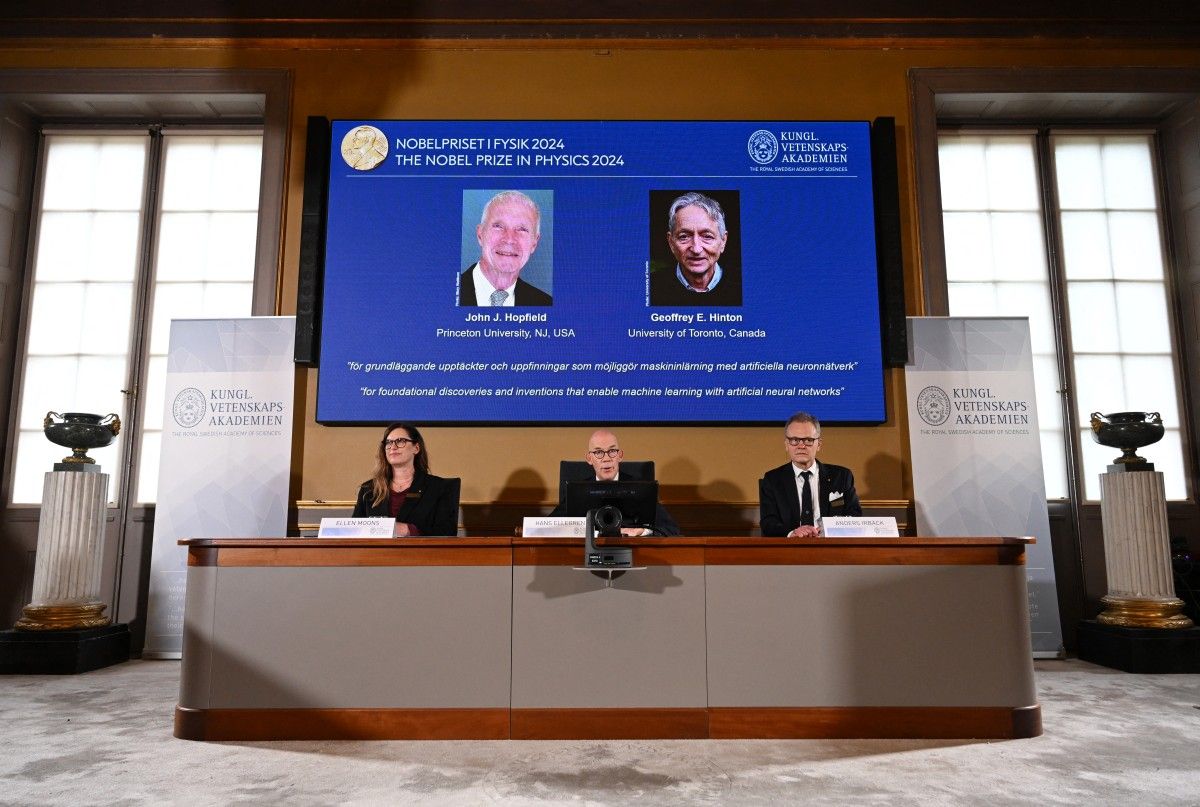
The 2024 Nobel Prize in Physics has been awarded to John Hopfield and Geoffrey Hinton for their significant contributions to machine learning, highlighting the impact of artificial neural networks on modern artificial intelligence.
The 2024 Nobel Prize in Physics has been awarded to British-Canadian John Hopfield (born 1933) and American Geoffrey Hinton (born 1947) for their fundamental discoveries that paved the way for "machine learning" through "artificial neural networks." Their work, conducted since the 1980s, highlights the importance of theoretical physics in the rise of new technologies, marking a turning point in the development of artificial intelligence. In a statement released by the Royal Swedish Academy of Sciences, Hopfield was recognized for having "created an associative memory that can store and reconstruct images and other types of patterns in data." Meanwhile, Hinton was acknowledged for having "invented a method that can autonomously find properties in data," which allows for the identification of "specific elements in images."
Neural architectures
Machine learning, a sub-discipline of artificial intelligence, employs artificial neural networks. This approach enables computers to acquire knowledge from various types of data (such as images, text or sound) by relying on algorithms that automatically adjust the model's internal parameters based on the provided examples. With this technology, systems can continuously adapt and evolve without the need for manual programming for each new task. Machine learning relies on neural architectures inspired by the functioning of the human brain, facilitating the recognition of complex patterns and the application of acquired knowledge to new data.
Statistical physics
A neural network consists of multiple layers of interconnected neurons. Each neuron receives information, processes it, and transmits it to neurons in subsequent layers. As the network is exposed to data, it adjusts the weights of these connections based on the errors it makes in its predictions. This adjustment process, often carried out using optimization algorithms, allows the model to refine its internal representations and improve its performance on specific tasks. "The 2024 laureates used fundamental concepts from statistical physics to design artificial neural networks that function as associative memories and find patterns in large datasets," stated Ellen Moons, chair of the Nobel Committee for Physics, at a press conference.
A range of applications
Artificial neural networks are utilized in various applications, from image recognition and natural language processing to content recommendation and anomaly detection. They also automate industrial processes, diagnose diseases from medical images, and forecast stock price fluctuations. Furthermore, their ability to learn from vast amounts of data makes them valuable tools in AI research, contributing to advancements in fields such as autonomous driving and robotics. According to Ellen Moons, artificial neural networks have also been employed to advance research in diverse areas such as particle physics, materials science and astrophysics. "They have become a part of our daily lives," she emphasized.
In light of the rapid advancements in artificial intelligence, now honored with a Nobel Prize, a question arises: How can we redefine the notions of humanity and creativity at a time when machines increasingly seem capable of replicating traditionally human skills? The new Nobel laureate seems to have the answer. "In the same circumstances, I would do the same again, but I am worried that the overall consequence of this might be systems more intelligent than us that eventually take control," Hinton told reporters during a phone interview after the announcement.

Comments